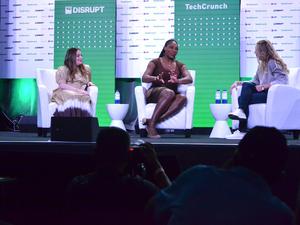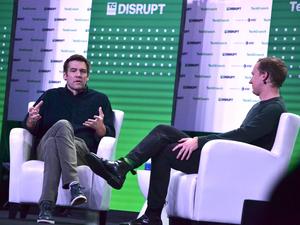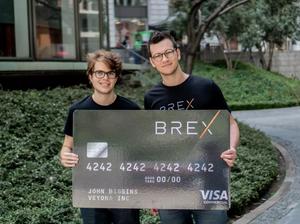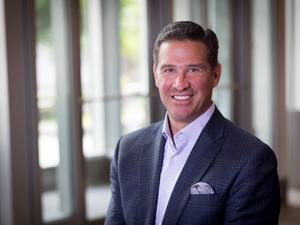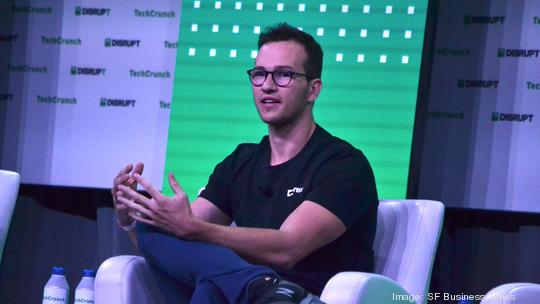
Founders and investors talk about the ups and downs of startups, and Brex has certainly had a year.
The San Francisco financial services startup raised $300 million in January at a $12.3 billion valuation — less than nine months after raising $480 million in a Series D that valued the company at $7.8 billion, according to PitchBook.
In June, it dropped thousands of small business customers to refocus on serving startups, midmarket companies and enterprise corporations. A couple of months later, it hosted a yacht party in Los Angeles. And then in October, it cut 11% of its workforce due to a combination of refocusing its strategy and broader economic uncertainty, co-CEO Pedro Franceschi wrote in a blog post.
On Wednesday, co-founder and co-CEO Henrique Dubugras said that, looking back on the company's growth, there are two things that they would have done differently: communicate better about who it was trying to serve and also not taking on more than they could handle.
He made the comments during a talk with TechCrunch reporter Mary Ann Azevedo during the publication's annual Disrupt conference in San Francisco.
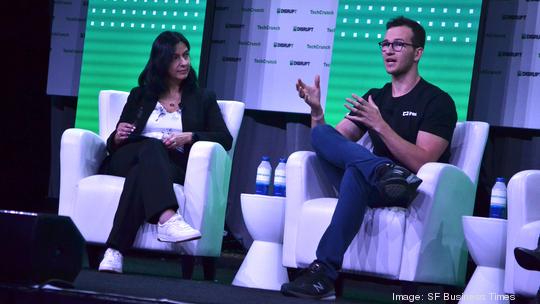
Here are the highlights from their conversation:
What he would have done differently at Brex earlier on
“I think the first problem was that it was very confusing who we were and who we weren't solving for… We released what is the eligibility criteria and were hoping to get all kinds of startups right from the bootstrap ones that hasn't received venture funding to venture funding to crypto, right? That is the target audience that we do want to serve, and I think we should have made that more clear. … So, that was probably a big learning just in terms of how we communicate it to our customers.
“And then I'd say, look, the biggest learning for me that I try to apply is sequencing, instead of parallel. So, try to do less things well and focus on them instead of trying to catch the whole world at once.”
On making the decision to cut jobs after a recent successful funding round
“It's an incredibly hard thing to do as CEO and founder. If you think about the journey of being a CEO and founder, this is the worst part. … Good companies, they are companies who see reality and adapt to the environment. And we had both the business model shift … as part of the reason. Second is, in a world in which now a path to profitability is very important, you need to be able to make decisions like these and focus on getting there. So, we did what we had to do to keep a sustainable business.”
On minimizing cash burn and preserving runway right now
“The biggest cost in startup is headcount, I would say. We don't have very aggressive hiring plans anymore. And you know, obviously, we did this layoff. So those are probably the biggest measures, and I think as a remote-first company, we also have very little office. So that's also very helpful.”
How Brex thinks about its customer acquisition costs and spending on "flashy marketing" like yacht parties during an economic downturn
“There's the stuff we did in the early days, and there's the stuff we do now. In the early days, the famous story is that we actually bought almost every billboard in San Francisco. And because there's actually not a lot of people buying billboards, everyone only wants to do Google and Facebook ads because it's so easy to track conversion rates and measure, we actually bought most of the billboards in San Francisco for three months for $300,000. Which may seem like a lot of money. We had raised around $60 million at the time, so it wasn't huge for us, but it was massively successful.
“We definitely got way more than that in revenue in the first month that we did that.… And then after we did it, a lot of people did it, so it got more expensive. So… coming up with, what are people not doing? What are the opportunities that not everyone is doing right now? Because if everyone is doing it, then it doesn't work. So we were always trying to do you think some of them work some of them didn't work. The cafe (in San Francisco) clearly after the pandemic didn't work, but you got to keep trying stuff.
“These days, look, Brex is extremely structured. When we talk to our startup customers, they always say that community is one of the most important things for them. It's like, they love being a Brex customer because of the community of Brex customers. So, doing events and parties and things that put the community together is a core part of our strategy and it's one of the ways that we build relationships with our customers… You can't save your way to a successful startup. You need to invest and you need to do things. You just need to be thoughtful and make sure that the money is going to the right places, and it's not being wasted.”
